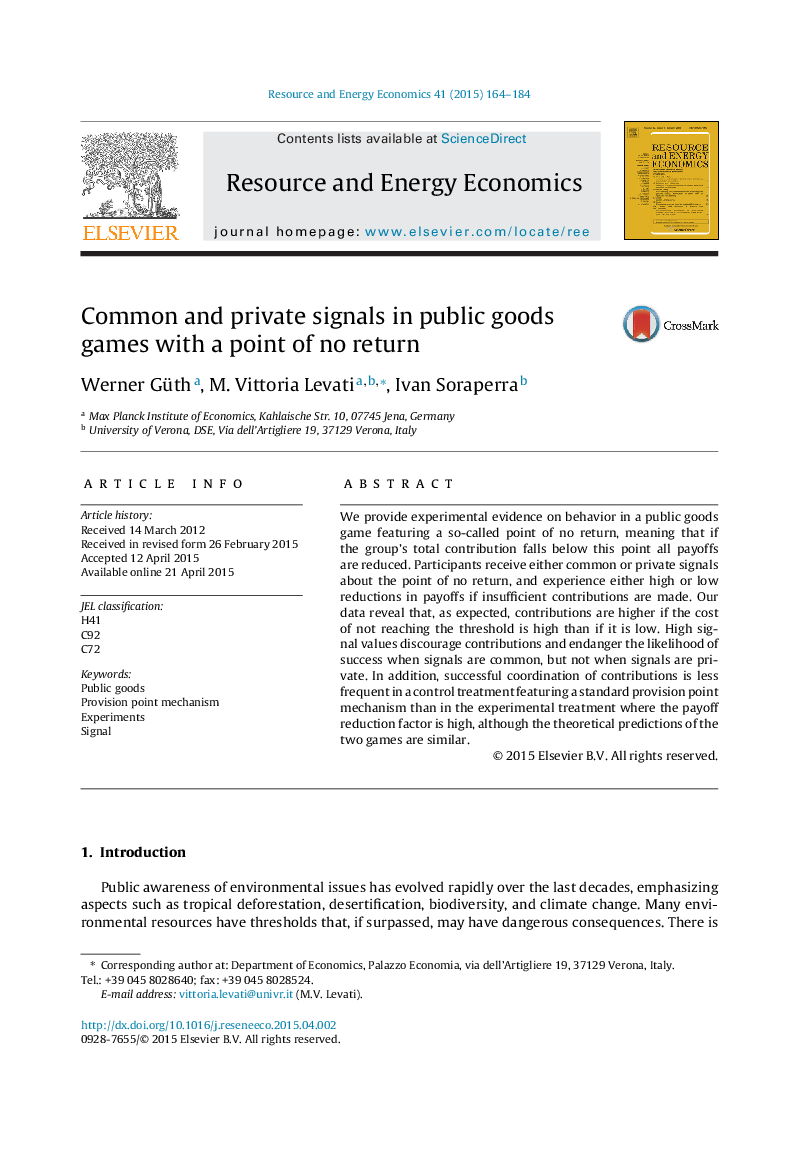| Article ID | Journal | Published Year | Pages | File Type |
|---|---|---|---|---|
| 985524 | Resource and Energy Economics | 2015 | 21 Pages |
•We explore if the threat of points of no return helps coordinating contributions.•The payoff reduction factor can be either low or high.•The signal about the point of no return can be either common or private.•Increasing the payoff reduction factor boosts contributions whatever the signal type.•High signals discourage contributions without endangering success if signals are private.
We provide experimental evidence on behavior in a public goods game featuring a so-called point of no return, meaning that if the group's total contribution falls below this point all payoffs are reduced. Participants receive either common or private signals about the point of no return, and experience either high or low reductions in payoffs if insufficient contributions are made. Our data reveal that, as expected, contributions are higher if the cost of not reaching the threshold is high than if it is low. High signal values discourage contributions and endanger the likelihood of success when signals are common, but not when signals are private. In addition, successful coordination of contributions is less frequent in a control treatment featuring a standard provision point mechanism than in the experimental treatment where the payoff reduction factor is high, although the theoretical predictions of the two games are similar.
